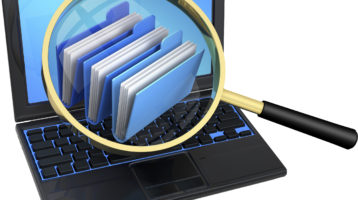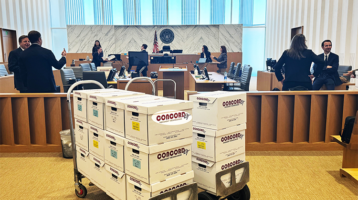
Call CONCORD today for help on your E-Discovery project
(800) 246-7881
by Joshua Hummel of Fox Rothschild LLP
For many people, the costs and expenses associated with e-discovery might be the first thing that comes to mind. Or, in this era of ever-expanding data, the sheer volume of electronically stored information would certainly be near the top of the list. For people who don’t consider themselves “tech-savvy,” the often overwhelming complexities of the technology (and all of the different breeds of computers, servers, cell phones, cloud systems, emails, text messages, databases, social media, etc.) would likely pop up as a frequent answer.
But as it goes in life, time is probably our biggest enemy when it comes to e-discovery.
To be certain, costs, data volume and the complexity of information systems can all be significant obstacles to overcome. But to a significant degree, those challenges can often be reasonably managed or controlled the earlier that e-discovery is addressed.
E-discovery is never easy, but it almost always gets more and more difficult the longer it goes unaddressed. If you wait too long to implement an effective litigation hold, documents can be deleted or lost forever. If you wait too long to plan for e-discovery in your case, you may find yourself already locked into decisions and procedures that are inefficient or unnecessarily expensive (or discovery deadlines that are overly aggressive). If you wait too long to gather and review documents, you may later be forced into spending much more time or money than you need to on a document production, or you may create an unnecessary risk of missing important deadlines or making a mistake in rushing a production.
Having more time and paying earlier attention to e-discovery means that you will have a much greater ability to, among other things:
- minimize the risks of losing potentially relevant information;
- understand the available data and look for ways to control the scope and expense of discovery;
- improve your strategy in the case by finding key documents and evidence earlier in the litigation; and
- investigate the most cost-effective and efficient ways to search for, review and produce, the potentially discoverable documents.
While courts continue to award sanctions for the spoliation or loss of evidence, there has been a significant uptick in the last year of opinions in which sanctions were awarded for lack of transparency during the e-discovery process, which has almost always resulted from the failure to promptly investigate or understand the e-discovery issues in the case. Courts are pushing for parties and their attorneys to take action and reach agreements on e-discovery issues earlier in litigation, and later this year, the Federal Rules of Civil Procedure will likely be amended to move Rule 16 and Rule 26 conferences up 30 days, and to more specifically require parties to discuss e-discovery preservation, review and production efforts during those conferences.
Now more than ever, time is the most precious thing there is with respect to e-discovery, and it shouldn’t be wasted.


